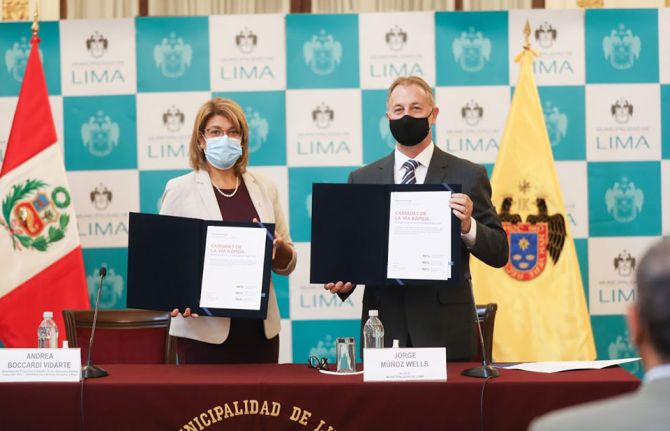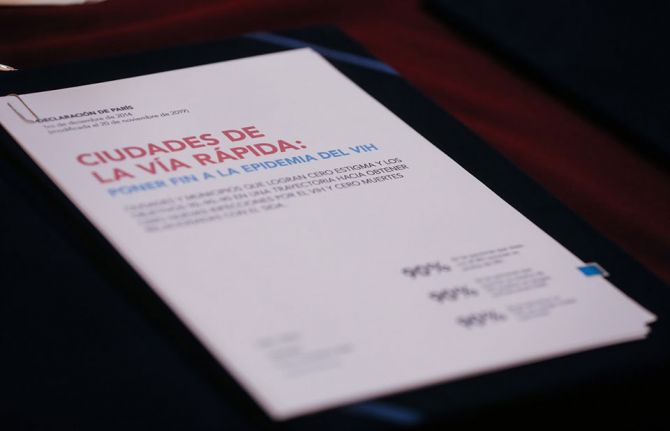



Feature Story
Lima joins the Fast-Track cities initiative
18 December 2020
18 December 2020 18 December 2020When Lima celebrated this year’s World AIDS Day, the Mayor, Jorge Muñoz, decided to go beyond the traditional lighting of buildings and participation in official events to mark the day. By signing the Paris Declaration to end the AIDS epidemic in cities, he joined the Fast-Track cities initiative, a network of more than 300 municipalities around the world, 70 of which are in Latin America and the Caribbean, and committed to ending the AIDS epidemic as a public health threat by 2030.
Lima has a population of more than 10 million people and accounts for around one third of the national population. Lima and the two other Peruvian municipalities that have already signed the Paris Declaration, Callao and La Victoria, accounted for around 50% of all new HIV infections in the country in 2019.
“Through this public commitment, the city of Lima pledges to carry out the necessary actions to accelerate the response to AIDS, including education, awareness-raising and non-discrimination campaigns,” said Mr Muñoz during the signing ceremony. “We will also implement a work plan to train health personnel and promote access to information and sex education.”
“With the signature of the Paris Declaration, the city has committed to eliminate stigma and discrimination against people living with HIV and key populations, scale up HIV prevention services and contribute to achieving national targets to end AIDS as a public health threat by 2030 as part of the Sustainable Development Goals,” said Andrea Boccardi, the UNAIDS Country Director and Representative for Peru, Ecuador and the Plurinational State of Bolivia.
This is not the first time that Mr Muñoz has taken action against discrimination. In May 2019, when he was the Mayor of the city of Miraflores, he established an ordinance that prohibited discrimination in all its forms in the public and private spheres of the district. Now, as the Mayor of Lima, he has extended that policy to the entire province.
On 1 December 2014, mayors from around the world met in Paris to launch the Fast-Track cities initiative and pledged to adopt a series of commitments to accelerate their response to HIV, with the aim of ending the AIDS epidemic by 2030. Besides committing to ending the AIDS epidemic at the municipal level and uniting as leaders, the signatories also commit to putting people at the centre, addressing the causes of risk, vulnerability and transmission of HIV, using the AIDS response for positive social transformation, building and accelerating appropriate responses reflecting local needs, and mobilizing resources for integrated public health and sustainable development.



